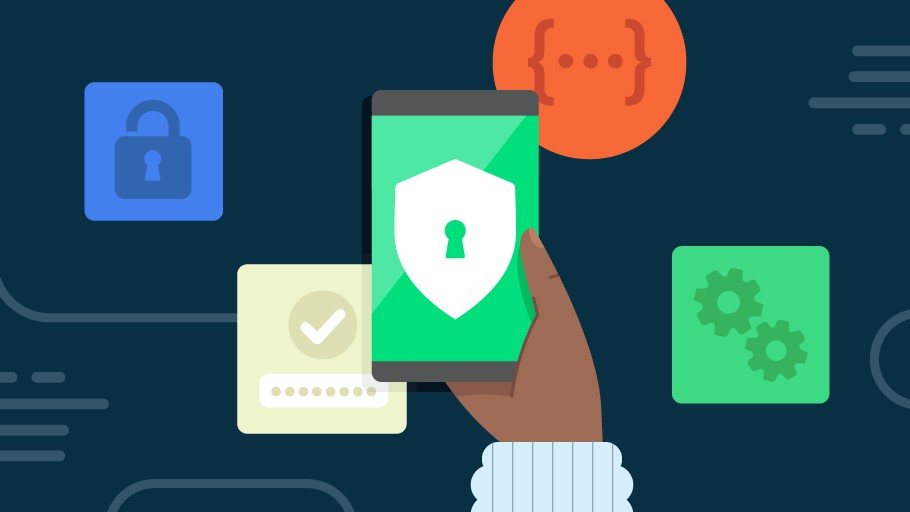This Android spyware is posing as an antivirus app to steal your photos and passwords — how to stay safe
It will not keep you safe

Here at Tom’s Guide our expert editors are committed to bringing you the best news, reviews and guides to help you stay informed and ahead of the curve!
You are now subscribed
Your newsletter sign-up was successful
Want to add more newsletters?

Daily (Mon-Sun)
Tom's Guide Daily
Sign up to get the latest updates on all of your favorite content! From cutting-edge tech news and the hottest streaming buzz to unbeatable deals on the best products and in-depth reviews, we’ve got you covered.

Weekly on Thursday
Tom's AI Guide
Be AI savvy with your weekly newsletter summing up all the biggest AI news you need to know. Plus, analysis from our AI editor and tips on how to use the latest AI tools!

Weekly on Friday
Tom's iGuide
Unlock the vast world of Apple news straight to your inbox. With coverage on everything from exciting product launches to essential software updates, this is your go-to source for the latest updates on all the best Apple content.

Weekly on Monday
Tom's Streaming Guide
Our weekly newsletter is expertly crafted to immerse you in the world of streaming. Stay updated on the latest releases and our top recommendations across your favorite streaming platforms.
Join the club
Get full access to premium articles, exclusive features and a growing list of member rewards.
In an attempt to protect yourself online, you might have downloaded a seemingly safe antivirus app that turned out to be a malicious app spreading dangerous spyware. Unfortunately, it may have come via a random Telegram or strange text message from a friend too.
The LunaSpy Android spyware program was reported on in a recent Kaspersky blog post which revealed that the spyware has been infiltrating phones since at least February of this year. Allegedly, LunaSpy can be sent via messaging apps and sold as an antivirus program and sometimes as a banking protection app.
The spyware pretends to scan your device for viruses to trick you into granting permissions to the app. However, doing so enables it to steal data, track you, and even record audio and video.
While it pretends to run antivirus scans, LunaSpy is actually swiping passwords, recording your screen, and even running commands on your phone. Kaspersky even found unused code that would allow it to steal your photos.
If you're data is stolen via LunaSpy, it's reportedly sent to over 150 command and control servers. These servers are then used by cybercriminals to communicate with and control infected devices.
How to stay safe from malicious apps

A spyware or malware infection can come from clicking on malicious links, downloading attachments in emails from unknown senders or through piracy. However, one of the most common ways to be infected is through both official and unofficial app stores.
In the LunaSpy case, it can be traced back to malicious links. With that in mind, you need to be extremely careful putting new apps on your Android phone and especially ones recommended by others through messages on social media or over text.
Get instant access to breaking news, the hottest reviews, great deals and helpful tips.
If you haven't heard of an app before, look for it in the Google Play Store and read reviews as well as check its ratings first. Since these can both be faked though, you'll want to look for external reviews on other sites. Video reviews are especially helpful as they give you a chance to see the app in action.
For Android phones, you want to make sure that Google Play Protect is enabled on your devices
Even good apps can go bad when injected with malicious code, we recommend limiting the number of apps you have installed overall just to be safe. Fewer apps means less risk that you've downloaded a malicious one or a legitimate app that has been taken over by hackers.
For Android phones, you want to make sure that Google Play Protect is enabled on your devices. It's a free and built-in security app that scans your existing apps and any new ones you download for malware and other malicious activity. You might also want to consider running one of the best Android antivirus apps alongside it for additional protection.
Malicious apps aren't going anywhere, and suspicious links are only one prong in hackers' attempts to get sensitive data. However, if you pause before tapping on a strange link and limit the number apps on your phone, your chances of getting infected go down significantly.
Additionally, you'll want to discuss these safety practices with your younger and older family members and friends since not clicking suspicious links and investigating any new apps before you download them is key to keeping your loved ones safe from hackers.
More from Tom's Guide
- 5 Android settings you need to turn off right now because they’re a huge security risk
- I’m a security editor and this is one security rule I never break
- 12 computer security mistakes you're probably making — and what to do instead

Scott Younker is the West Coast Reporter at Tom’s Guide. He covers all the lastest tech news. He’s been involved in tech since 2011 at various outlets and is on an ongoing hunt to build the easiest to use home media system. When not writing about the latest devices, you are more than welcome to discuss board games or disc golf with him. He also handles all the Connections coverage on Tom's Guide and has been playing the addictive NYT game since it released.
You must confirm your public display name before commenting
Please logout and then login again, you will then be prompted to enter your display name.
 Club Benefits
Club Benefits










